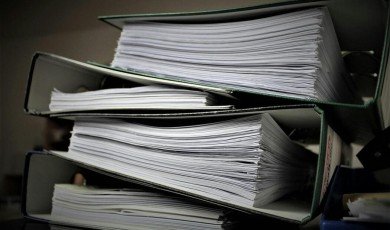
In today’s interconnected world, news, politics, and global trade are more entwined than ever, crossing linguistic borders at the speed of light. Political communication, trade agreements, policy announcements, and diplomatic statements must traverse not just physical boundaries, but also the intricate landscape of language and culture. Professional translation services are the unsung heroes enabling this seamless multilingual communication, ensuring messages remain accurate, authoritative, and impactful—regardless of the audience’s native tongue. This post explores the pivotal role of translation experts in political discourse, especially amid evolving trade tariffs, international diplomacy, and the relentless global news cycle.
The Rising Need for Multilingualism in Political and Trade Communication
Globalization has brought economies and governments into closer contact than ever before. New trade partnerships, treaties, and international policies are daily news. Whether it’s a new tariff announcement, a cross-border economic summit, or diplomatic correspondence between nations, multilingual communication has become the norm—not the exception.
In this environment, professional translation services are not a luxury, but a necessity. Government agencies, news outlets, and multinational organizations cannot afford to let their messages get lost in translation. A misinterpreted political statement or inaccurately translated trade agreement could yield political fallout or even trigger trade disputes.
Countries like China, Germany, France, and the United States recognize that diplomacy and trade hinge on precise communication. That’s why agencies and states often rely on official translation services when handling critical documents—ensuring every word carries its intended legal and political weight.
The News Media and Cross-Border Political Reporting
The global news cycle demands fast, accurate, and culturally sensitive translations. News agencies routinely translate reports, speeches, interviews, and policy documents, enabling citizens worldwide to stay informed. For instance, when the World Trade Organization releases a statement about new tariffs, that information must be available in multiple languages almost instantly. High-quality professional translation services guarantee promptness and precision, empowering journalists and analysts to relay information without distortion or delay.
Furthermore, multilingualism in political reporting strengthens public understanding and transparency. When citizens can access news from world leaders and bodies like the United Nations or the European Union in their native languages, it builds trust in institutions and encourages public engagement with global issues.
The Role of Certified and Official Translation Services in Political Documentation
Political and trade documents often require more than fluent language skills—they demand legal and administrative accuracy. Consider treaties, trade pacts, legislative texts, immigration policies, and court documents. These materials determine international relations and affect millions of lives. For such high-stakes documents, official translation services ensure legally certified translations that stand up to scrutiny in courts or diplomatic discussions.
These services employ certified translators who understand not just language, but context, law, and protocol. Their expertise prevents misunderstandings that can result from ambiguous phrasing or colloquial expressions. Furthermore, organizations like the Globalization and Localization Association connect governments and businesses with trusted language solutions, supporting transparent and legally compliant communication across borders.
Facilitating International Trade and Tariffs: The Impact of Accurate Translation
In the realm of international trade, clarity can spell the difference between economic growth and costly misunderstandings. Trade agreements, customs documentation, import/export restrictions, and tariffs all hinge on clear, precise language. A poorly translated trade clause could lead to regulatory loopholes or disputes, potentially inviting sanctions or negatively impacting multinational commerce.
Professional translation services provide a vital bridge in these scenarios—ensuring that all stakeholders, regardless of their native language, fully understand terms, obligations, and concessions. They don’t just translate words; they localize content to reflect cultural and legal nuances, reducing the risk of friction in international negotiations.
Diplomacy and Multilingual Political Engagement
Diplomacy is all about dialogue, persuasion, and the skillful use of language. Leaders must communicate subtly and effectively—sometimes through carefully constructed public statements, other times through legal documents or confidential memos. Professional translation services enable diplomats and officials to preserve intent as well as meaning, respecting cultural sensitivities and diplomatic protocols.
During high-profile meetings—such as G7 summits or United Nations assemblies—interpreters and translators play a central role. Their ability to instantly convert political messages from one language to another, with all the requisite nuance and formality, ensures a level playing field for all participants and fosters mutual respect. This is especially vital today, as migration, climate change, technology, and security challenges demand unprecedented levels of multinational cooperation.
Social media and real-time digital communication channels have further increased the demand for multilingual political engagement. A tweet, a press release, or a news alert from a government leader now reaches a global audience within seconds. Political stakeholders rely on expert translators to adapt their messages—sometimes in multiple languages at the same time—maintaining accuracy and impact across all platforms.
Case Studies: Real-World Impact of Translation in Politics and Trade
- Brexit Negotiations: The multifaceted and lengthy Brexit negotiations involved the translation of thousands of pages of complex legal and political documents into more than 20 languages. Official translation services were central to avoiding misunderstandings between the United Kingdom and the European Union, with each side able to verify the accuracy and legality of translated texts.
- COVID-19 Pandemic Response: As governments and organizations shared critical health updates, border policies, and economic measures, translation became central to public health and safety. Accurate translation of policies related to trade tariffs and movement restrictions enabled consistent global responses and supported supply chain resilience.
- US-China Trade Wars: During the ongoing trade negotiations and tariff discussions between the US and China, professionally translated statements and agreements ensured that both parties, as well as international observers, received clear, unambiguous information, minimizing the risk of conflict driven by language errors.
For those interested in exploring more about careers or insights into global language solutions, professional networks such as LinkedIn offer valuable resources and connections.
Conclusion: The Indispensable Value of Professional Translation in Global Politics
In the domains of news, politics, and global trade—especially with complex issues like tariffs and international agreements at stake—language is both a bridge and a battleground. Without reliable professional translation services, messages can be misinterpreted or lost entirely, leading to diplomatic faux pas, economic missteps, or public distrust. As global interdependence grows and as political discourse becomes ever more instantaneous and far-reaching, the demand for expert translation will only deepen.
Organizations, governments, and news agencies that invest in official translation services are equipped to meet the challenges—and reap the opportunities—of our multilingual world. Whether it's ensuring fairness in trade agreements or maintaining transparency in international policy, skilled translators and interpreters prove indispensable for fostering understanding, building trust, and ensuring the smooth flow of information on the world stage.
For those shaping policy, reporting the news, or navigating complex global markets, prioritizing professional translation isn’t just best practice—it’s essential to success.








